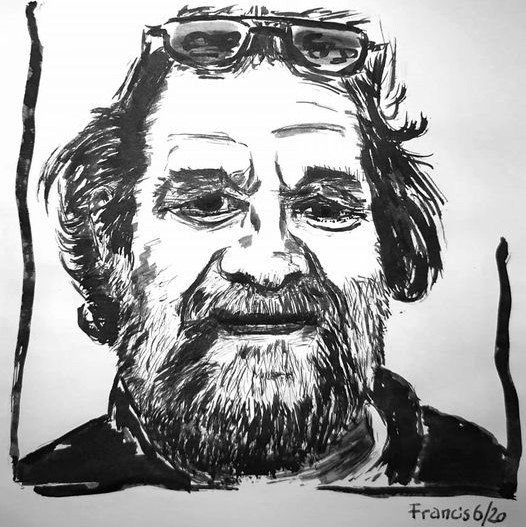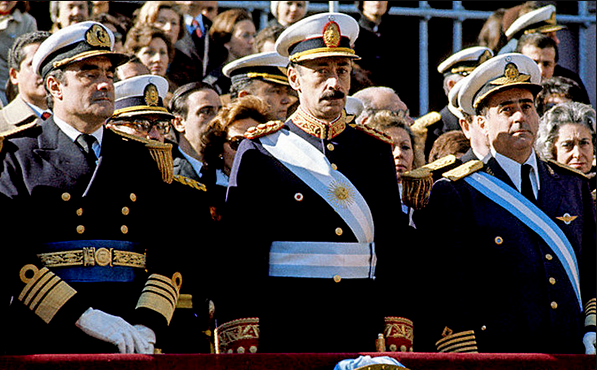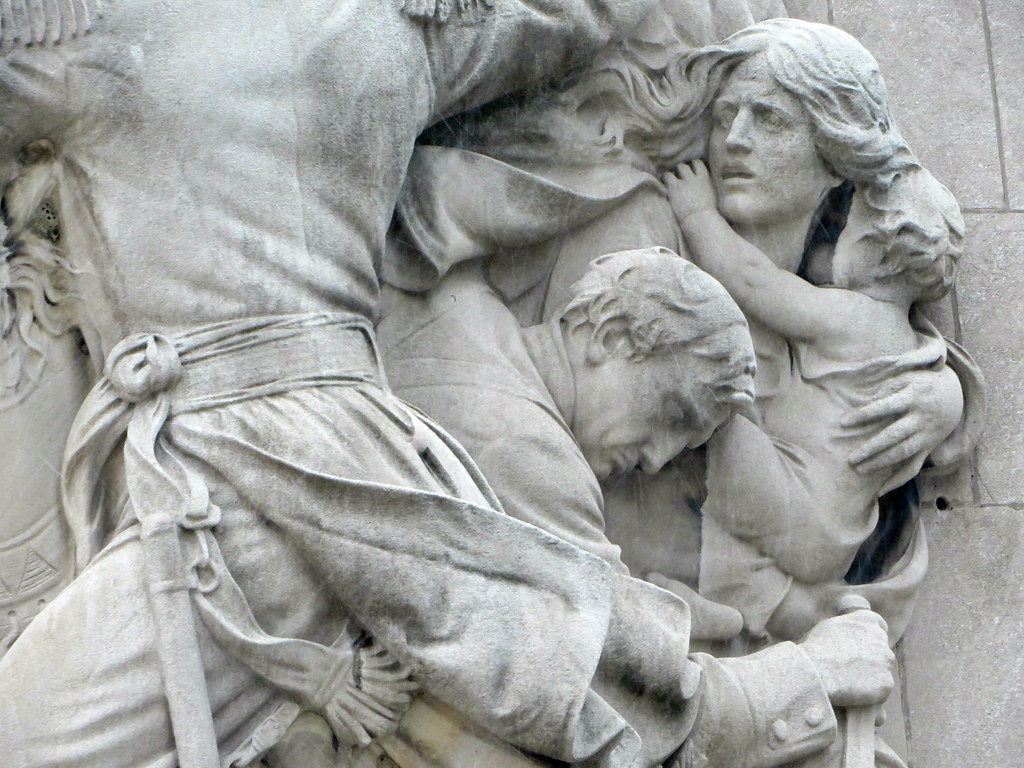I was shocked and dismayed to hear last Sunday morning that my friend and comrade, the socialist activist and Marxist theoretician John Molyneux, had died of a heart attack the previous afternoon. It was all the more poignant because on that Saturday I had had an email exchange with John, something that we had increasingly done over recent years.
John was one of that generation of socialist activists that had been aroused by the events of 1968 in London and Paris, In an interview for a recently published book called “We Fought the Law” John graphically described how he had been both shocked and radicalised by the confrontation with the police in Grosvenor Square outside the American Embassy during the massive demonstration against the Vietnam War in March 1968. Another formative event was a visit to France during May 1968. Shortly afterwards he became a revolutionary socialist and joined the International Socialists, a commitment that he maintained until his death last weekend.
Within the IS and its successor the Socialist Workers Party, John quickly established himself as a significant theoretician. His first major work was Marxism and the Party, a study of the Marxist tradition of revolutionary organisation from Marx and Engels through Lenin, Luxemburg, Trotsky and Gramsci. The book emphasised the necessity of a democratically organised activist interventionist party rooted in the working class to prepare for the overthrow of capitalism and lay the basis for socialism.
John not only produced major theoretical works such as What Is the Real Marxist Tradition? and Is Marxism Deterministic? but also a huge amount of material aimed at providing a basic introduction to Marxist ideas in the form of regular newspaper columns in British and later Irish Socialist Worker. These articles also appeared in a number of papers associated with the International Socialist Tendency. Many of them were reproduced as popular pamphlets such as The Future Socialist Society, Arguments for Revolutionary Socialism and “Is Human Nature a Barrier to Socialism?”.
However, John wasn’t just a populariser of a Marxist orthodoxy, he was also prepared to raise awkward questions that sometimes brought him into conflict with many members of his own organisation. A case in point was his second major theoretical work, “Leon Trotsky’s Theory of Revolution”. John was a great admirer of Trotsky, but in this work he raised serious questions about some of Trotsky’s weaknesses, such as his tendency to make sweeping predictions about future developments – some of these resulted in powerful and valuable analyses such as his treatment of the rise of fascism and the fate of the Spanish Revolution, but after his death his predictions about the outcome of World War II led to serious disorientation of many of his followers in the post-war period.
Other bones of contention were his orientation during a major debate in the SWP about women’s oppression and the nature of democracy in a revolutionary organisation. But despite such differences John remained a committed and loyal member of his organisation.
In 1992 John became a lecturer at the School of Art and Design of the University of Portsmouth. This allowed him to concentrate more on one of his great passions, the visual arts. He not only theorised about art, producing detailed studies of many artists in their social contexts ranging from Rembrandt and Rubens through Van Gogh to the Young British Artists such as Damien Hirst and Tracy Emin. This aspect of his work culminated in his 2020 book, “The Dialectics of Art”, in which he expounded his somewhat controversial concept of art as “work produced by unalienated human labour and characterised by a fusion or unity of form and content”.
He didn’t just concentrate on the visual arts – he also managed to produce major studies of Shakespeare and even wrote a Marxist critique of J.R.R. Tolkien.
In 2010 John retired from his position in Portsmouth and moved to Dublin to be with with his partner, Mary Smith. But instead of settling into a well-deserved retirement, John threw himself into the politics of his new home and rapidly became a leading member of the Irish SWP, later Socialist Workers Network, and the People Before Profit party. He became a familiar figure with a bunch of papers and pamphlets under his arm on virtually every demonstration that occurred in Dublin.
John didn’t just participate, he became a leading member, populariser, pamphleteer and theorist of various campaigns such as Unite Against Racism, the Global Ecosocialist Network and the Irish Anti-War Movement – indeed he died after attending a meeting of the IAWM last Saturday.
During all of this activity John kept producing a prodigious amount of written material whether as editor of Irish “Socialist Worker”, founder-editor of the “Irish Marxist Review” or author of books on a wide variety of subjects. I’ll just mention a few: “The Point is to Change It”, “Anarchism: A Marxist Criticism”, “Lenin for Today”. About the only topic he didn’t deal with was economic theory, which he left to comrades he felt were more competent. His final publication earlier this year was appropriately “Selected Writings of Socialism and Revolution”.
I first met John more than 40 years ago while I was helping organise the first couple of Marxism Conferences in London. He impressed me as a giant of a man with a friendly smile who was prepared to discuss with anybody who approached – although he was already a major intellectual figure there was nothing distant or academic in his approach and he was prepared to discuss relatively difficult issues in such a manner that even people with little experience were able to follow his arguments without too much difficulty. This was also true of his meetings, which were a joy to listen to and where you could always be certain to learn something new.
Later I got to know him better while I was working at Bookmarks bookshop. Among other things I helped promote the various Bookmarks publications, including John’s. We were never particularly close because we never lived in close proximity to each other, but one memory sticks out: About 15 years ago we were both invited to speak at a conference in Prague. We were both staying at the same accommodation and met with our hosts in a pub where we had something to eat and drink. We then moved to our accommodation and beds were prepared, but we ended up talking about all manner of subjects until after 4 in the morning although we were supposed to be at the conference by 10 a.m. Somehow we actually managed to make it, but I still have the impression that John’s contributions to the discussion were more lucid and coherent than mine!
More recently we have collaborated on making a mirror of the IMR within the Encyclopedia of Trotskyism section of the Marxists’ Internet Archive, which involved me converting the articles from PDF format to searchable HTML format. We also corresponded occasionally about particular articles and John also asked me for suggestions for reading – not so much for himself but for other comrades who had approached him for advice.
I send my sincerest condolences to his partner, Mary, and to his children, grandchildren and great-grandchildren, as well as his comrades and friend in Ireland, Britain and all over the world. He will be sorely missed, but his contributions will not be forgotten.
Einde O*Callaghan, who is one of the administrators of the Marxists International Archive has already created a rudimentary archive for John Molyneux’s writings, which will be added to regularly over the coming weeks and months.




